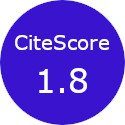Optimization of Asymmetric Timetable Considering Train Energy Consumption and Passenger Satisfaction for Urban Rail
Abstract
An asymmetric train schedule optimization method is proposed to solve the problem of subway tidal passenger flow in view of the contradiction between service quality and operating energy consumption in urban rail transit systems. Firstly, the passenger loading process is considered, and the coupling relationship between the train operation status and the dynamic evolution of passengers is established. Based on this, a passenger satisfaction piecewise function is constructed, and the waiting time of passengers on the platform is used to quantify their dissatisfaction. The total train energy consumption and passenger dissatisfaction are taken as the dual objectives of the model, while train operation constraints are considered to establish an asymmetric timetable optimization model. To solve this complex timetable optimization problem, an improved non-dominated sorting genetic algorithm (SNSGA-II) based on simulation is designed. The optimization results show that by comparing timetable optimization schemes under three different passenger flow disturbance scenarios, when the per capita dissatisfaction is identical, the optimized timetable reduces train energy consumption by 5.7%, 9.8%, and 17.6% respectively compared with its benchmark timetable under different passenger flow environments. Sensitivity analysis of the model parameters demonstrates that adjusting the weighting of passenger travel can adapt to operational requirements. Performance comparison between the proposed asymmetric and symmetric timetables under tidal passenger flow reveals that the asymmetric timetable achieves up to 7.12% energy consumption optimization, indicating its effectiveness in adapting to directional and temporal passenger flow variations with more flexible and efficient optimization potential.



